Contributors to the Water themed issue
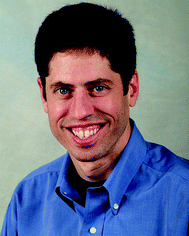 |
| | Plate1 William Arnold | |
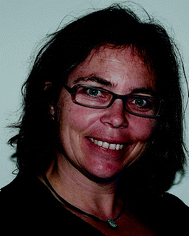 |
| | Plate2 Ulrike Bende-Michl | |
Ulrike Bende-Michl studied geography, soil and political science and received her masters degree from the Rhenish Friedrich–Wilhelms University in Bonn, Germany. She obtained her Ph.D. from the Faculty of Chemistry and Earth Science at the Friedrich–Schiller University in Jena, Germany in 2004 and worked in EU projects related to the implementation of the European Water Framework Directive. In 2006 she started working as a postdoctoral fellow at the CSIRO in Canberra, Australia. Her work concerns the detection and assessment of nutrient sources, pathways and nutrient fluxes in mesoscale catchments. Ulrike uses high temporal frequency analysis of nutrients in freshwater systems to study dominant controls of hydrologic and biogeochemical processes and the influence of land use management on nutrient delivery.
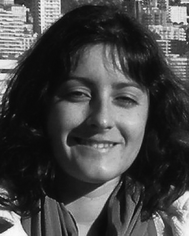 |
| | Plate3 Ana Cristina Brito | |
Ana Cristina Brito was born in Lisbon, Portugal, in 1983. She received her first degree in Environmental Biology from the Faculty of Sciences of the University of Lisbon in 2005 and started immediately a joint PhD project in Environmental Biology at Edinburgh Napier University (United Kingdom) and at the University of Algarve (Portugal). She received the PhD degree in 2009. Her current research interests are: eutrophication, the Water Framework Directive, ecological quality assessments, ecological modelling, shallow coastal lagoons and microphytobenthos.
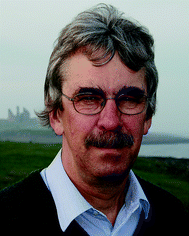 |
| | Plate4 Tim Burt | |
Tim Burt is Professor of Physical Geography and Master of Hatfield College at Durham University. He specialises in catchment hydrology, water pollution and long-term monitoring of the natural environment.
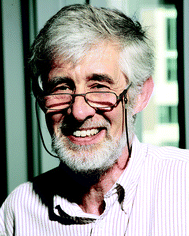 |
| | Plate5 Peter Campbell | |
Peter Campbell was born in England, in 1943. He received his PhD in physical-organic chemistry from Queen's University, Canada in 1968, and subsequently spent two years at Monash University in Australia as an NRCC postdoctoral fellow. In 1970 he joined a water research centre within the Institut National de la Recherche Scientifique (INRS, part of the Université du Québec). He has spent his entire career with the INRS, interspersed with sabbatical years spent in England, France, the USA and Australia. Elected to the Royal Society of Canada in 2002, he currently holds a Canada Research Chair in Metal Ecotoxicology. His current research interests include elements of analytical chemistry (development of methods to determine metal speciation), geochemistry (identification of factors controlling metal speciation in natural waters) and ecotoxicology (relating the biological response elicited by a metal to its speciation in the external medium and its partitioning with the subcellular environment).
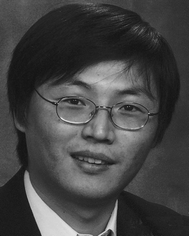 |
| | Plate6 Hefa Cheng | |
Hefa Cheng is currently a consulting assistant professor of environmental engineering at Stanford University. He received his Ph.D. in Civil and Environmental Engineering with a minor in Geological and Environmental Sciences from Stanford University. His research is focused on understanding the dynamics and sustainability of natural and engineered systems and the development of strategies, technologies and policies to address critical environmental issues related to the quality of groundwater.
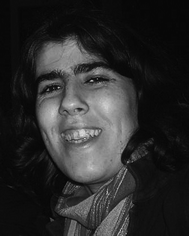 |
| | Plate7 Raquel Vasconcelos Ferreira | |
Raquel Vasconcelos Ferreira was born in Portugal, in 1976. She received her Masters degree in Environmental Engineering from the University of Aveiro, Portugal in 2007. Since 2007 she has been linked to CESAM—Centre for Environmental and Marine Studies, a Research Unit of the University of Aveiro with the status of “Associated Laboratory”, as a postgraduate researcher and fellow. Currently she continues to be linked to the above mentioned research unit, as a PhD student in Environmental Applied Sciences at the Department of Environment and Planning, inside the Integrated Watershed Management research group. Her current research interests are: water quality assessment; soil erosion and hydrological studies in recently burned forest areas; wildfire effects on soil nutrients stocks and surface-water nutrient loads.
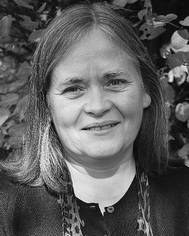 |
| | Plate8 Montserrat Filella | |
Montserrat Filella was born in Barcelona, in 1955. She received her PhD in Chemistry from the University of Barcelona in 1986. She teaches Environmental Chemistry at the University of Geneva, where she arrived in 1987. Since 2007 she also works in the development of a society specialised in fundamental research in environmental chemistry in Luxembourg. She is a IUPAC fellow and member of a number of scientific societies. Her main research interests focus on the understanding of the physicochemical processes regulating the behaviour of chemical elements in environmental and biological compartments, mainly by combining computer modelling with field and laboratory measurements. The three main axes of her research concern the study of: colloids in natural waters, natural organic matter (quantification and interaction with trace elements) and Group 15 elements. She is also interested in other topics such as the relationship between art and chemistry and is active in science popularisation activities.
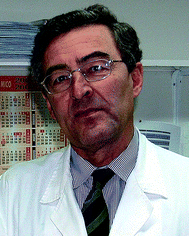 |
| | Plate9 Rafael J. García-Villanova | |
Rafael J. García-Villanova was born in Spain, in 1952. He received his degrees in Chemistry (1976) and Pharmacy (1978), and his PhD in Pharmacy (1982) from the Universidad de Granada. In 1984 he joined the Universidad de Salamanca as Professor of Chemical Analysis. Currently he is Professor of Nutrition and Food Science at the Faculty of Pharmacy of the same institution. His two main research topics and expertise are: Quality of waters intended for human consumption and quality of products of the hive (honey and pollen). For more than 20 years he has been studying the factors affecting the formation and presence of disinfection by-products in the waters of Castilla y León, Spain. He is delegate for Spain and a member of the board of the Association Scientifique Européenne pour l'Eau et la Santé. As an expert in Food Safety he is co-director of the postgraduate international course “Seguridad Alimentaria. Sistema APPCC”.
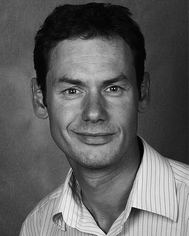 |
| | Plate10 Christian Griebler | |
Christian Griebler was born in Austria, in 1970. He studied Limnology at the University of Vienna, Austria, where he received his PhD in 1998. During his PhD work at the Institute of Limnology of the Austrian Academy of Sciences in Mondsee, Austria, he switched his focus to groundwater microbial ecology. In 2001 he joined the Centre of Applied Geosciences at the University of Tuebingen, Germany. In 2004 he moved to the National Research Centre of Environmental Health (former GSF) in Munich, Germany, to become an independent group leader at the Institute of Groundwater Ecology. His current research interests are: (1) Biodegradation of organic contaminants, (2) Impact of thermal changes (geothermy), (3) Fate of pathogenic viruses in aquifers. Recently, the development of an ecologically sound assessment scheme for groundwater ecosystems became a serious research focus. Christian Griebler is lecturer for at the Technical University in Munich and at the University of Vienna.
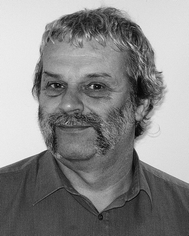 |
| | Plate11 Alan Howard | |
Alan Howard was born in London, within the sound of Bow Bells. After obtaining a BSc in Chemistry (1972) and an MSc in Advanced Analytical Chemistry (1973) from the University of Bristol, he then carried out research into the mechanisms responsible for the accumulation of heavy metals in shellfish. He was awarded a PhD from the University of Bristol for that work in 1976. Following a short period of postdoctoral work, he moved to the University of Southampton as a temporary lecturer and after a number of job titles, is currently a Senior Lecturer in analytical and environmental chemistry in the School of Chemistry. His main research interests are currently in the analytical applications of nanoparticles, trace analysis and the speciation and behaviour of contaminants in the aquatic environment.
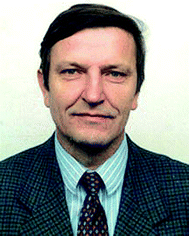 |
| | Plate12 Arvo Iital | |
Arvo Iital is an Assistant Professor at the Department of Environmental Engineering, Tallinn University of Technology. He has 15 years of experience in the monitoring and assessment of surface water quality, assessment of environmental state, eutrophication of inland and coastal waters and environmental policy. Since 1994, he has been involved in many national and international projects in Europe and in Asia.
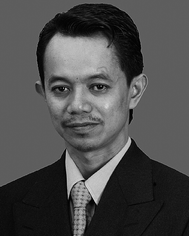 |
| | Plate13 Hafizan Juahir | |
Hafizan Juahir was born in Malaysia, in 1971. He received his PhD in Environmetrics/Chemometrics and Artificial Intelligence for pollution control from University of Malaya, Malaysia in 2008. In 1997–1998 he joined Zuellig Chemicals (M) Sdn. Bhd. as an immediate QA/QC Chemist. In 2004 to 2005 he joined Spatialworks Sdn. Bhd. as immediate Plant Manager. Since 2005 he has been academic officer at Putra University, Malaysia. His current research interests are: (i) water quality data analysis and modelling, (ii) water pollution risk assessment and (iii) waste water treatment using biological control agrobase media.
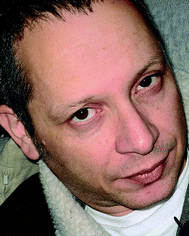 |
| | Plate14 Simon Judd | |
Simon Judd has been at the Centre for Water Science at Cranfield University since 1992, and has managed most of the membrane bioreactor programmes conducted within the Centre. He has authored/co-authored over 50 papers and three reference books on membrane technology, and contributed keynotes, conducted consultancy and delivered short courses in MBR technology globally.
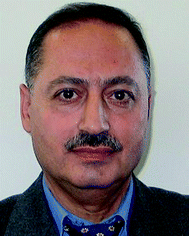 |
| | Plate15 Ibrahim Khamis | |
Ibrahim Khamis earned his MSc in 1986 and his PhD in 1988 in Nuclear Engineering from the University of Arizona, Tucson, Arizona, USA. Since 2006, he has been the Project Manager for nonelectric applications of nuclear energy at the Nuclear Power Technology Development Section, Division of Nuclear Power, International Atomic Energy Agency (IAEA). His duties involve nuclear desalination, hydrogen production, district heating and other industrial applications of nuclear energy. He is the author or co-author of more than 70 research publications and conference presentations. His main interests are reactor physics, design and simulation, and nonelectric applications of nuclear energy.
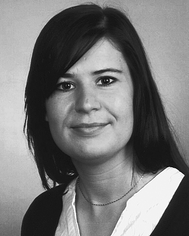 |
| | Plate16 Dorothea Marzena Kujawinski | |
Dorothea Marzena Kujawinski was born in Poland, in 1984. She received her MSc in Water Science from University Duisburg-Essen, Germany, in 2008 as well as her BSc in the same subject in 2006. In 2009 she started her PhD thesis in the group of Prof. Dr Torsten C. Schmidt at University Duisburg-Essen. Her current research interests are temperature-modulated chromatographic separation techniques for the hyphenation of liquid chromatography to isotope ratio mass spectrometry for environmental and food science.
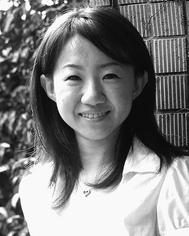 |
| | Plate17 Angela Yu-Chen Lin | |
Angela Yu-Chen Lin was born in Taiwan, in 1976. She received her PhD in Environmental Engineering from Stanford University, USA in 2005. She then joined Kennedy/Jenks Consultants as immediate engineer. Since August 2006 she has been Assistant Professor at the Graduate Institute of Environmental Engineering in National Taiwan University. Her current research interests are: occurrence and fate of emerging contaminants in aqueous environments, solar photodegradation of pharmaceuticals, occurrence and engineering fate/treatment of perfluorinated chemicals (i.e. PFOA, PFOS), natural attenuation of trace organics, water reuse.
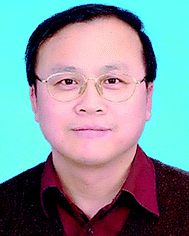 |
| | Plate18 Lu Liu | |
Lu Liu received his PhD from Nankai University in 2001, and he moved to Tongji University to carry out postdoctoral research in collaboration with Prof. Qingsheng Wu. At present, he works at the College of Environmental Science and Engineering, Nankai University, and has obtained the position of professor. His current interests include synthesis of nanomaterials for applications in catalysis, Li batteries.
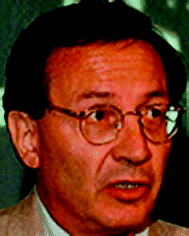 |
| | Plate19 André P. Maïsseu | |
André P. Maïsseu was born in Paris, France in 1942 and is a Swiss citizen. He is an Engineer and a graduate of Institut des Sciences de la Matière et du Rayonnement (ISMRA), Caen, France, 1966, and of the Institut National des Sciences et Techniques Nucléaires (INSTN), Centre d'Etudes Nucléaires, Saclay, France, 1967. He is a Docteur d'Etat es Sciences-Physiques (University of Caen, 1971) and Docteur es Sciences Economiques et de Sciences de Gestion (University of Caen, 1976). He worked in the French nuclear industry for 30 years (CEA, then AREVA). He was nominated Professeur des Universités in 1988 (IAE, University of Paris 1 ‘Pantheon—La Sorbonne’). He was a Visiting Professor at the University of Wisconsin (1992), Case Western Reserve University, Cleveland, Ohio (1993), and University of South Western Louisiana (1994). Professor Maïsseu is the founding President of the World Council of Nuclear Workers (WONUC) and Atoms for Peace. He is the Editor-in-chief of the Interscience Nuclear Collection, has published several scientific books, about two hundred scientific articles and one novel. His current scientific interests are nuclear peaceful applications (production of electricity, desalination, production of hydrogen), mathematics (prime number, fuzzy logic), thermodynamics (Prigogine theory, negentropy), Gestaleconomy.
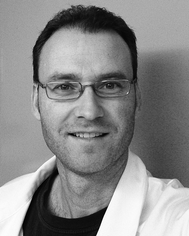 |
| | Plate20 Anthony Martin | |
Anthony Martin was born in Australia in 1976 and is due to complete his PhD on Harvested Water Quality from the University of Newcastle, Australia in 2009. Anthony first joined the University of Newcastle in 1997 to develop methods for the identification of bacteria in pathology, and field samples. His research interests include: harvested rainwater quality and management, water microbiology, rainwater reuse and the detection of waterborne pathogens.
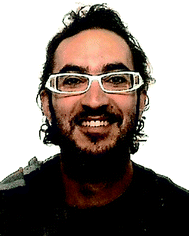 |
| | Plate21 Iago López Martínez | |
Iago López Martínez was born in Spain, in 1977. He obtained his degree in Chemistry at the University of Balearic Islands and is currently studying on the doctorate program of Hydraulic & Environmental Engineering at the Hydraulics Institute of Cantabria (University of Cantabria), Spain. He is currently working in the Submarine Outfall & Environmental Hydraulics Group of the Hydraulics Institute of Cantabria (IH Cantabria). His current research interests are: water pollution, water quality, monitoring and quality programs design, and environmental risk assessment.
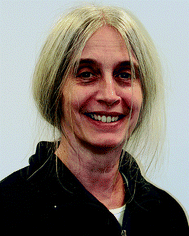 |
| | Plate22 Linda May | |
Linda May is a freshwater ecologist at the Centre for Ecology and Hydrology in Edinburgh, Scotland, UK. Her research interests include the sources and fates of plant nutrients within the freshwater environment, especially their impacts on ecological water quality. A particular focus of her work is the application of science-based decision making to the restoration of nutrient enriched lakes.
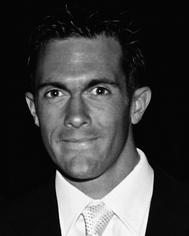 |
| | Plate23 Phil Monbet | |
Phil Monbet was born in France in 1974. He received his PhD in Marine and Analytical Chemistry from University of Western Brittany (France) in 2001. After several postdoctoral positions in Australia at the Australian Institute for Marine Science (AIMS, Townsville) and the Water Studies Centre (Monash University, Melbourne), Dr Monbet is currently a Visiting Research Fellow in the Biogeochemistry & Environmental Analytical Chemistry research group (BEACh) at the University of Plymouth and also works for the French Research Institute for Exploitation of the Sea (IFREMER, France) as a consultant for water quality and monitoring.
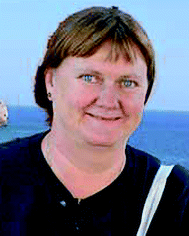 |
| | Plate24 Alice Newton | |
Alice Newton was educated in France, Belgium, Portugal and the UK. Her university degrees area BSc in Marine Biology and Oceanography, an MSc in Biological Oceanography and a PhD in Chemical Oceanography conferred by the University of Wales, Bangor, UK. Alice coordinates the ERASMUS MUNDUS Joint Master in Water and Coastal Management at the University of Algarve, Faro, Portugal and is the current Chairperson of LOICZ (Land-Ocean Interactions in the Coastal Zone), a core project of the International Geosphere-Biosphere Programme and the International Human Dimensions Programme at NILU, the Norwegian Institute for Air Research. Alice's research interests include eutrophication, both “natural” in upwelling zones and “anthropogenic” in coastal and transition waters.
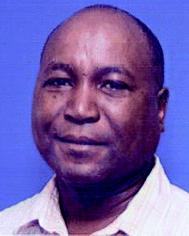 |
| | Plate25 Murage Ngatia | |
Murage Ngatia received his BSc from the University of Nairobi in 1978. Thereafter he worked as a resource ecologist conducting aerial surveys for the Department of Range Management. He obtained an MSc in Range Science (Remote Sensing and Spectral Analysis) from the University of California at Davis (USA) in 1986. He then worked as a private consultant in range management water quality. In 1994 he joined the California Department of Water Resources as an Environmental Scientist in Quality Assurance/Quality Control program. He is the author of the Department's quality assurance management for environmental monitoring programs. His current research interests are: spectral analyses of fluorescence signatures to fingerprint sources and quality of organic carbon in aquatic environment; formation of disinfection by-products (trihalomethanes and haloacetic acids) in drinking water.
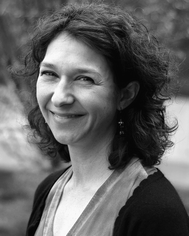 |
| | Plate26 Paige Novak | |
Paige Novak was born in the United States, in 1970. She received her PhD in Environmental Engineering from The University of Iowa, Iowa City, Iowa, United States in 1997. She joined the University of Minnesota as an assistant professor in 1997. Currently, she is an associate professor in Civil Engineering. Her current research interests are: microbial dechlorination, the fate of estrogenic contaminants in wastewater systems, and water quality monitoring.
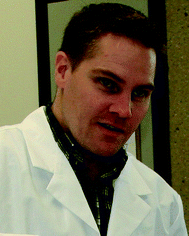 |
| | Plate27 Benjamin Packard | |
Benjamin Packard was born in the United States, in 1972. He received his BA in biology from the University of Nebraska, Lincoln, in 1995, and is currently finishing a Masters in Environmental Science at the University of Cincinnati. He is currently a biologist with the Environmental Protection Agencies National Homeland Security Research Center in Cincinnati, OH.
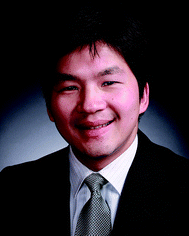 |
| | Plate28 Bingcai Pan | |
Bingcai Pan was born in China in 1976. He received his PhD in environmental engineering from Nanjing University (China) in 2003, and then he joined the Department of Environmental Engineering and State Key Laboratory of Pollution Control and Resource Reuse, Nanjing University as immediate assistant professor. Now he is a professor of environmental engineering and the dean of the Department of Environmental Engineering, Nanjing University. His current research interests are: design and fabrication of novel materials for water purification, physiochemical treatment of industrial wastewater.
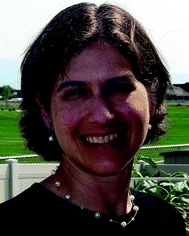 |
| | Plate29 LeeAnn Racz | |
LeeAnn Racz is currently an Environmental Engineering PhD candidate at the University of Utah working under Dr Ramesh Goel. She is also an active duty Air Force officer with a position as a Bioenvironmental Engineer, and has been stationed in New Mexico, South Korea, Colorado, Texas and Utah. She holds a professional engineer license and is currently studying nitrifying biomass and estrogens in wastewater.
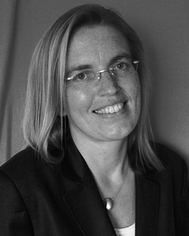 |
| | Plate30 Andrea Schäfer | |
Andrea Schäfer was born in Germany. She received her PhD in Natural Organics Removal using Membranes from The University of New South Wales in Sydney, Australia in 2000 where she was appointed as a lecturer before moving to the University of Wollongong as a senior lecturer in 2002. In 2006 she joined the University of Edinburgh, United Kingdom as the Chair of Environmental Engineering. Her current research interests are micropollutant–organic matter interactions, micropollutant removal using membrane technology, nanoparticle sorption, water recycling and desalination, remote community renewable energy powered water supply systems, water in international development, total water cycle management and persistent organic pollutants—all driven by the desire to make a difference to the planet in terms of social equity and sustainability.
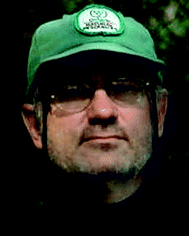 |
| | Plate31 William Shotyk | |
William Shotyk was born in the Village of Swansea, now part of the City of Toronto, in Ontario, Canada. He received his B.Sc. (Agr.) in Soil Science and Chemistry from the University of Guelph in 1981 and a Ph.D. in Geology from the University of Western Ontario in 1987. Following postdoctoral research at the University of California, Riverside and UWO, he worked at the University of Berne in Switzerland where he completed a Habilitation in Geochemistry, in 1995. After 12 years at the University of Berne, he became Professor at the University of Heidelberg and Director of the Institute of Environmental Geochemistry, in October of 2000. His research group is responsible for Inorganic Environmental Geochemistry, with state-of-the-art metal-free clean lab facilities and sector-field ICP-MS for measuring trace elements and Pb isotope ratios at extremely low concentrations. The main research areas are human impacts on the geochemical cycles of potentially toxic trace elements such as Pb, Sb, As, Cd and Hg, including archives of atmospheric change (ombrotrophic peat bogs and polar ice cores), fate in soils and sediments, and impacts on natural freshwaters. A member of the American Chemical Society, American Geophysical Union, and the Geochemical Society, he has published more than 170 articles, including 130 in refereed journals, as well as in conference proceedings, books, and newspapers. William Shotyk founded the Elmvale Foundation in 2007 (http://www.elmvale.org), a registered charity for environmental science education, and is the President and CEO.
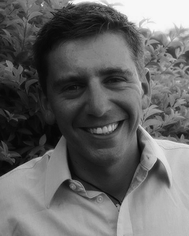 |
| | Plate32 Jeremy Sofonia | |
Jeremy Sofonia was born in Columbus, Ohio (USA) in 1977. He received his BSc in Environmental Science from the University of Florida in 1999 and MSc in Marine Biology from James Cook University, Australia in 2007. Currently a Principal Marine Scientist with GHD Pty Ltd, Jeremy has over ten years academic and professional experience on a wide variety of marine and terrestrial projects throughout Australia, North and Central America, the Caribbean and Middle East. His current work focuses on port expansion and other coastal development projects that have potential to alter the biophysical character of the local marine environment. Research interests include the development of methods to detect sub-lethal stress and provide meaningful impact thresholds for benthic primary producers. Jeremy is working to improve the tools and approaches used in today's environmental risk analysis and feedback monitoring programs to assist coastal zone managers in the determination of appropriate management action.
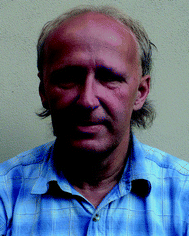 |
| | Plate33 Ondra Sracek | |
Ondra Sracek was born in the Czech Republic, in 1958. He received his PhD in environmental geochemistry from Universite Laval in Quebec, Canada in 1997. Until 2007 he worked at Masaryk University in Brno, Czech Republic. Currently he is Associate Professor of hydrogeology and environmental geochemistry at Palacky University in Olomouc, Czech Republic and also works as consultant for OPV s.r.o. company in Prague, Czech Republic. He also teaches at several universities in Latin America including university PUC in Rio de Janeiro, Brazil, and university UNAM in Mexico City, Mexico. He is a member of the Groundwater Arsenic Research Group (GARG) at the Royal Institute of Technology in Stockholm, Sweden. His current research interests are: arsenic behavior, acid mine drainage, and modeling of reactive transport.
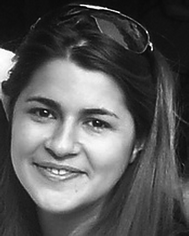 |
| | Plate34 Fotini E. Stamati | |
Fotini E. Stamati was born in Greece, in 1981. She received her diploma and MS degree in Environmental Engineering from the Technical University of Crete, Greece, in 2004 and 2006, respectively. She has been working as a researcher at the Hydrogeochemical Engineering and Remediation of Soils Laboratory (http://www.herslab.tuc.gr) since 2003. She is involved in many EU programs, such as tempQsim, LIFE-NATURA-04 MedPonds, Life-Environment-05 EnviFriendly, and SoilCritZone. Currently, she is a PhD candidate, working in the field of soil organic matter and nutrient cycling in the soil-water-plant interface. She was a visiting scholar in the University of Iowa for the period November 2008 to May 2009, working under Prof. Jerald P. Schnoor. Her current research interests are: hydrologic and nutrient watershed modelling, watershed measurements for the attenuation of pollutants, soil biochemical quality, soil organic matter decline, and modelling of life cycle of soils in the critical zone framework.
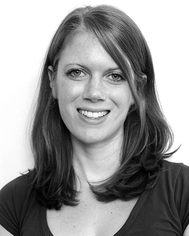 |
| | Plate35 Kelly Twomey | |
Kelly Twomey was born in Washington D.C. in 1985. She received her Bachelor of Science in Bioengineering from The Pennsylvania State University in 2007 and is currently pursuing an MS and PhD at the University of Texas at Austin in the Department of Mechanical Engineering. A recipient of a National Science Foundation fellowship, Ms Twomey conducts research within the Webber Energy Group under the supervision of Dr Michael Webber, whose focus is to analyze energy problems at the intersection of science, engineering, and public policy. Her research interests include the nexus of energy, food and water.
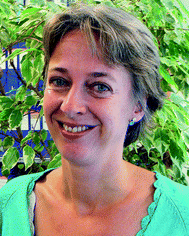 |
| | Plate36 Annemarie van Wezel | |
Annemarie van Wezel (MSc Biology, PhD environmental chemistry and toxicology) has 15 years of experience as scientific researcher in toxicology and chemistry, risk assessment, cost-benefit analysis and in environmental policy evaluation. She has published over 25 papers in peer-reviewed scientific journals, and over 20 reports in the context of (environmental) policy. She is experienced in working close to the political process and in interaction with the press. She has over 10 years experience in managing complex interdisciplinary research projects, and 3 years of experience in management of research groups. She currently leads a research group on chemical water quality and health at the KWR Watercycle Research Institute, at Nieuwegein in the Netherlands.
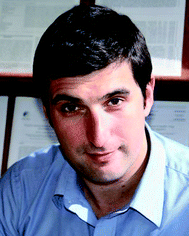 |
| | Plate37 Nick Voulvoulis | |
Nick Voulvoulis is a Reader in Environmental Technology at Imperial College London and the Director of Imperial's renowned MSc course in Environmental Technology, with more than 130 students graduating every year. His research focuses in the area of environmental assessment and municipal solid waste and wastewater management, with some of his research activities on the development and application of decision-making tools such as multicriteria analysis, risk management and sustainability assessment. He was born in Greece where he completed his undergraduate studies (first class BSc (Hons) in Environmental Sciences), coming to the UK in 1997 in order to study for the same MSc course he is now the Director of. He was awarded a PhD in Water Technology in 2000, when he was also appointed as a Lecturer in Water Management. He was promoted to Senior Lecturer in 2005 and became a Reader in 2008 now leading research in environmental quality management.
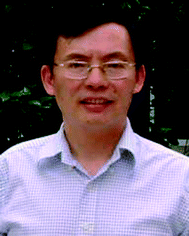 |
| | Plate38 Eddy Zeng | |
Eddy Zeng was born in Guangzhou, China in 1960. He received his Ph.D. degree in chemical physics from the Department of Chemistry, University of Southern California, USA in 1992. He joined the Southern California Coastal Water Research Project in June 1992 as a senior scientist and chemistry laboratory manager, and was promoted to the position of Principal Scientist two years later. Eddy Zeng has been a professor with the Guangzhou Institute of geochemistry since 2004 and became the director of the State Key Laboratory of Organic Geochemistry in 2006. His current research interests include the assessment of geochemical processes and fluxes of persistent organic pollutants (POPs) among environmental compartments, bioaccumulation and bioavailability of persistent halogenated compounds, and development of novel passive sampling techniques in monitoring of POPs in aquatic environments.
|
| This journal is © The Royal Society of Chemistry 2010 |
Click here to see how this site uses Cookies. View our privacy policy here. 





































